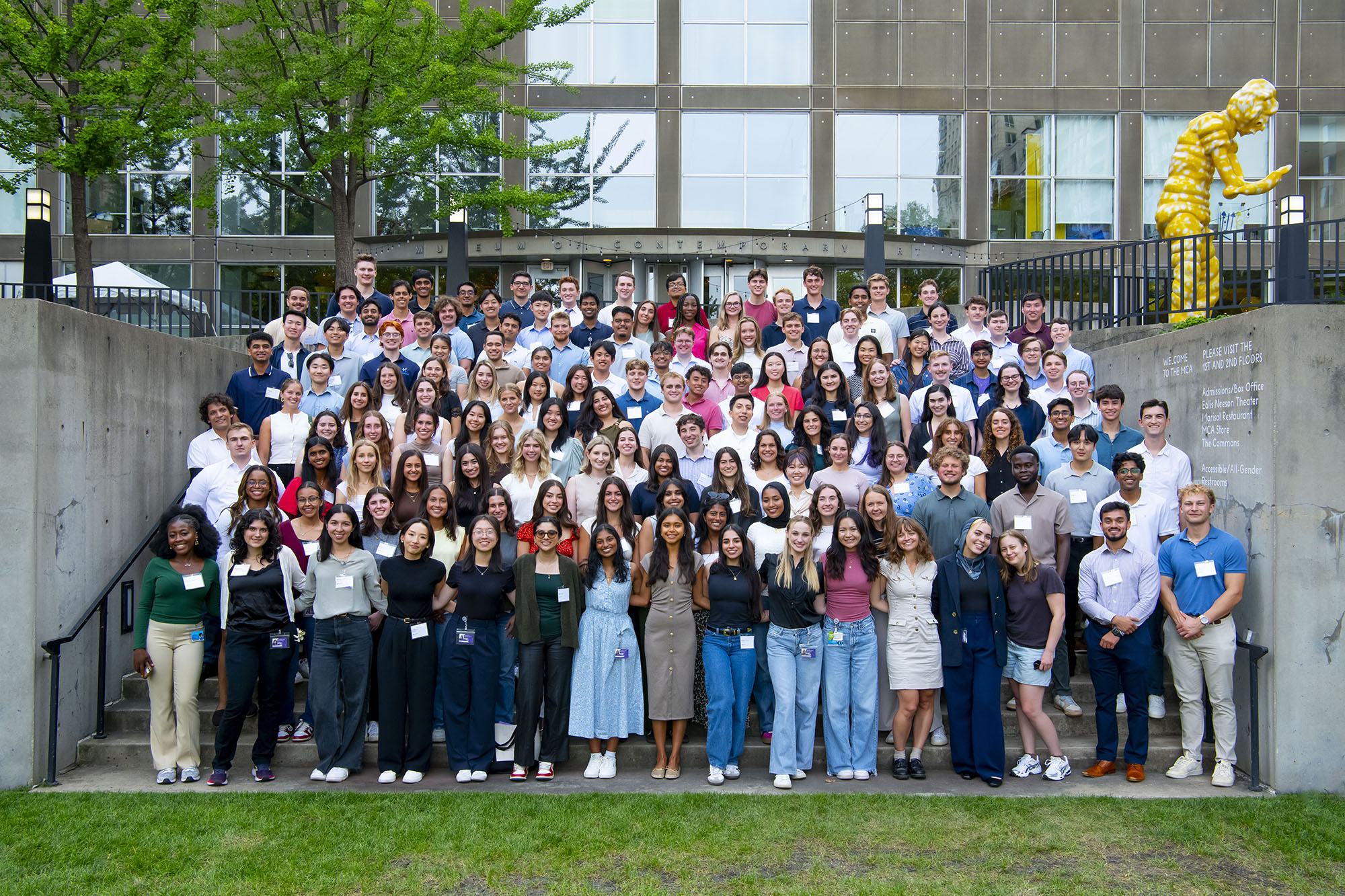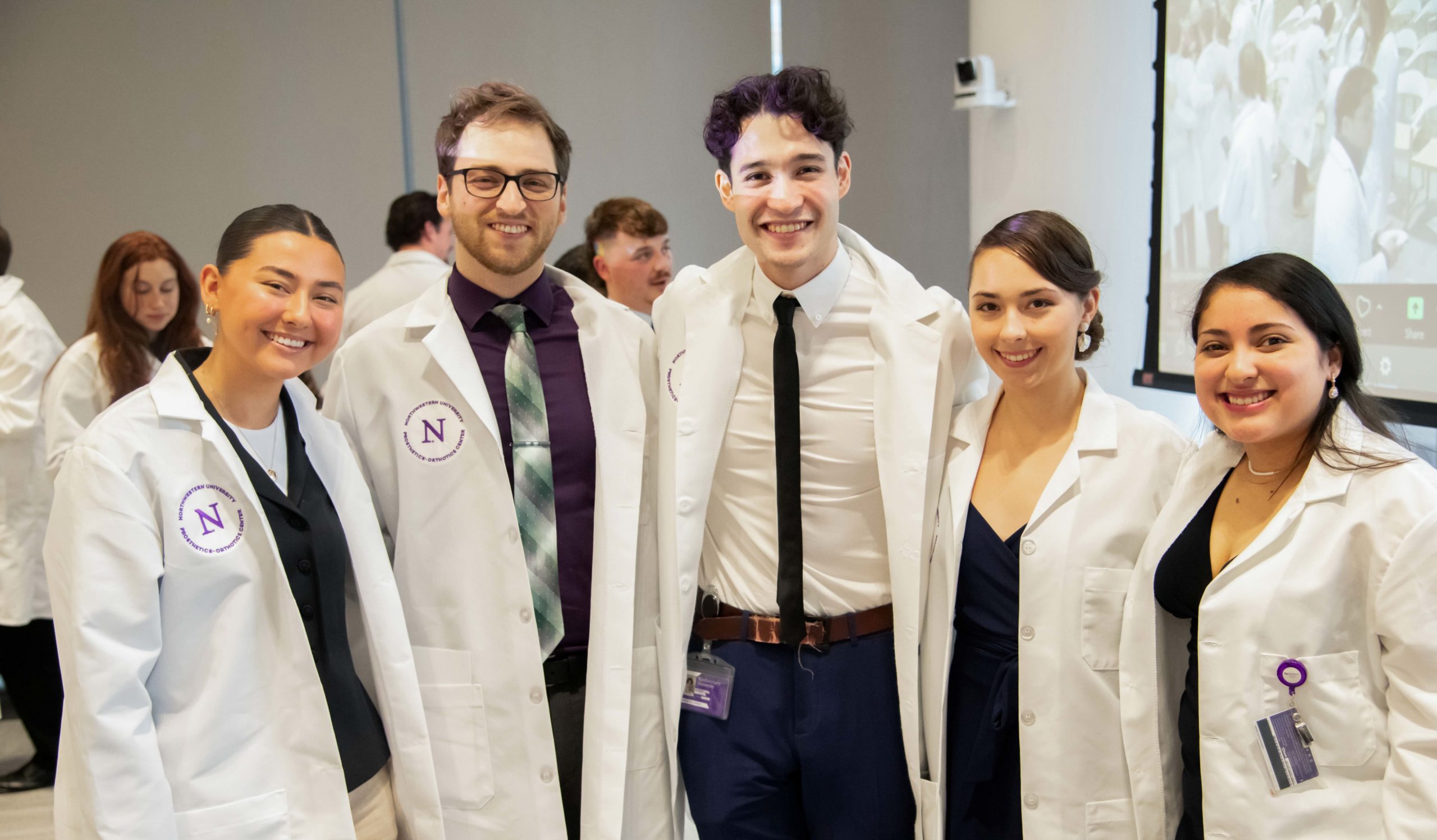Media Coverage
The work done by Northwestern University Feinberg School of Medicine faculty members (and even some students) is regularly highlighted in newspapers, online media outlets and more. Below you’ll find links to articles and videos of Feinberg in the news.
-
Fox News (National)
–
Most antipsychotic drugs not tied to birth defects
Dr. Katherine Wisner, who co-wrote an editorial accompanying the new research, said the amount of data and the methods used make this a “landmark” study.
“For women taking other medications besides risperidone, it is really solid data to show there is no identifiable increased risk of birth defects,” said Wisner, of the Northwestern University Feinberg School of Medicine in Chicago.
-
The New York Times
–
How Periods Might Affect Women’s Athletic Performance
For the past several years, Lynn Rogers, the director of the Neuralplasticity Laboratory at the Rehabilitation Institute of Chicago and her collaborators have been studying the potential impacts of hormonal changes across the menstrual cycle on women’s muscles, other soft tissues and nervous systems. Susceptibility to tissue injuries may be due in part to changing levels of estrogen and progesterone, the two main hormones involved in reproduction, throughout the menstrual cycle. Dr. Rogers, who also is an assistant professor at Northwestern University’s Feinberg School of Medicine, and other scientists suspect that these hormones and their fluctuations may subtly alter the efficiency with which the neurons communicate with the muscles, ligaments and other tissues that make the body move.
-
Crain’s Chicago Business
–
She wants to make an autonomous wheelchair
How much autonomy would you like with your self-driving car? It’s a conundrum for Silicon Valley and Detroit—but not for Brenna Argall,, a research scientist at Northwestern University and the Rehabilitation Institute of Chicago.
Argall and her colleagues are working on a smart version of a familiar off-road vehicle: a wheelchair. Backed with $2.5 million in federal grants, they hope to field a commercially feasible model within five years that leaves the user in charge but learns from what it’s told, making control simpler, reaction time faster and collision avoidance easier.
-
NPR
–
Could Worms In Your Gut Cure Your Allergies?
Stephen Hanauer at Northwestern University Feinberg School of Medicine, who was involved with one trial.
-
Fox News (National)
–
Is cupping safe? What’s behind those red marks on Olympians’ bodies
“When we use heat, it dilates the vessels and improves blood flow to certain areas,” Dr. Melissa Ring, executive director of the Osher Center for Integrative Medicine at Northwestern Medicine, told FoxNews.com. “Because of the way cupping works, it accelerates the process and is very localized.” Studies have suggested cupping can help relieve pain when combined with other therapies like acupuncture and spinal manipulation. While there isn’t data on its efficacy for athletic performance, Ring noted it’s commonly used for this purpose.
-
Crain’s Chicago Business
–
Zika and the 2016 Olympics: Looking for transparency and not finding it in Rio
To be clear, we are not suggesting that the WHO’s memorandum of understanding is in any way deceptive, or that it compromises the organization’s ability to make the right decisions for public health. But the lack of transparency makes people wonder. If they did not have anything to hide, then why won’t the WHO make the memorandum public? By making people wonder, the WHO puts at risk its ability to play the role of trusted third party in this situation, and perhaps beyond.
-
BBC Radio
–
New study on female fertility
Women may struggle to conceive as they age because their ovaries become scarred and inflamed, new research suggests. Until now it was believed fertility rates fell in females over 40 because the quality of their eggs declines. But the new study suggests it might be damage to the ovaries, which produce the eggs, that is to blame instead. Lead author Dr Francesca Duncan, of Northwestern University’s Feinberg School of Medicine, joins BBC 5 Live to discuss her research.
-
The New York Times
–
Dementia Patients Hold On to Love Through Shared Stories
Can you keep the love light shining after your partner’s brain has begun to dim? Just ask Denise Tompkins of Naperville, Ill., married 36 years to John, now 69, who has Alzheimer’s disease. The Tompkinses participated in an unusual eight-week storytelling workshop at Northwestern University that is helping to keep the spark of love alive in couples coping with the challenges of encroaching dementia. Every week participants are given a specific assignment to write a brief story about events in their lives that they then share with others in the group. The program culminates with a moving, often funny, 20-minute written story read alternately by the partners in each couple in front of an audience. The storytelling workshop, which started in January of 2014, was the brainchild of Lauren Dowden, then an intern in social work at Northwestern’s Cognitive, Neurological and Alzheimer’s Disease Center.
-
The New York Times
–
Rediscovering the Kitchen, and Other Tips for Heart Health
Dr. Donald M. Lloyd-Jones, a chief architect of a 2010 strategic plan to improve cardiovascular health, said: The whole may be greater than the sum of the parts. We shouldnt assume that chronic diseases automatically occur with aging. Living healthfully until we die is an achievable goal. Dr. Lloyd-Jones, a cardiologist and preventive medicine specialist at the Northwestern University Feinberg School of Medicine in Chicago, chaired an American Heart Association committee of experts that adopted the recommended changes. Instead of focusing on the negative, the plan aims to achieve ideal cardiovascular health through ideal health behaviors and ideal health factors.
-
HealthDay
–
Eczema’s Effects More Than Skin Deep
People dealing with the itchy skin condition known as eczema may have other medical conditions to cope with as well, including heart disease, a dermatologist says. Eczema, which causes dry, red patches of skin and intense itchiness, affects an estimated one-quarter of children in the United States. And, as many as seven million adults also have eczema, Dr. Jonathan Silverberg said in an American Academy of Dermatology news release. “Although it affects the skin, eczema is not just skin-deep. This disease can have a serious impact on patients’ quality of life and overall health, both physically and mentally,” Silverberg said. He’s assistant professor in dermatology, medical social sciences and preventive medicine at Northwestern University Feinberg School of Medicine in Chicago.






